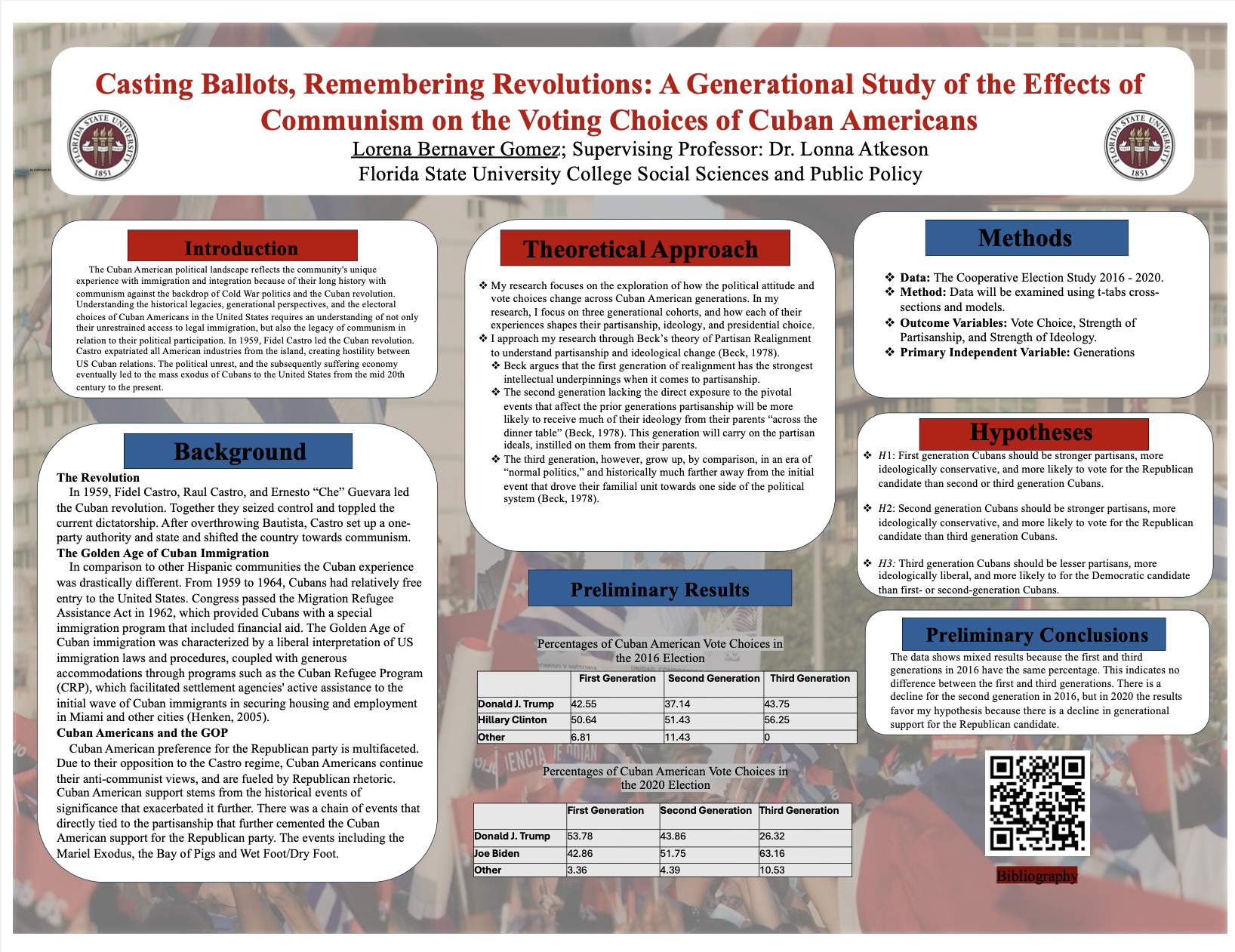Research Symposium
24th annual Undergraduate Research Symposium, April 3, 2024
Lorena Bernaver Poster Session 1: 9:30 am - 10:30 am /319
BIO
I am a first-generation Cuban American. I immigrated to the United States at the age of three under the "Wet Foot, Dry Foot" policy. Growing up in Miami, a vibrant hub of Cuban culture, I was exposed to the rich traditions and historical narratives of my heritage. This immersion sparked an interest in the political and social dynamics of the Cuban American community, particularly in how immigration and historical contexts such as communism influence voting behaviors. I have dedicated my research to exploring these complex relationships, aiming to unravel the multifaceted relationship between cultural identity and political ideology. My work not only reflects a personal journey but also serves the purpose of contributing meaningful insights to the Cuban American political landscape. I aspire to attend law school, equipping myself with the tools necessary to advocate for justice and represent the interests of my community. Ultimately, my goal is to venture into politics, where I can effect change and champion the causes that reflect my values and experiences.
Casting Ballots, Remembering Revolutions: A Generational Study of the Effects of Communism on the Voting Choices of Cuban Americans
Authors: Lorena Bernaver, Lonna AtkesonStudent Major: Political Science, History
Mentor: Lonna Atkeson
Mentor's Department: Political Science Mentor's College: College of Social Sciences and Public Policy Co-Presenters:
Abstract
This study examines the intergenerational effects of communism on the voting behaviors of Cuban Americans in the United States. Through a generational lens, the research investigates how each generations proximity to immigrating and experiences with communism shape Cuban Americans' political attitudes, ideologies, and voting choices. Drawing upon Beck's theory of Partisan Realignment, the study categorizes respondents into three generational cohorts – first-generation exiles, second-generation children of exiles, and third-generation Cuban Americans. The first generation, having immigrated to the United States, is hypothesized to exhibit stronger Republican partisanship and ideological conservatism. The second generation, influenced by familial attitudes and anti-communist sentiments, is expected to mirror the political leanings of their parents. In contrast, the third generation, being further removed from the landing, may display evolving political dynamics and a weaker attachment to anti-communist ideologies. Data is extracted from the Cooperative Election Study, providing a comprehensive survey of presidential vote choices, ideological orientations, and generations. Hypotheses are tested using cross-tabulations and regression analysis, controlling for demographic factors such as age, gender, and education. The study aims to illuminate the nuanced relationship between generational experiences with communism and Cuban American political engagement. Findings are expected to contribute to a better understanding of immigrant political behaviors in the United States and shed light on the significance of historical context in shaping voting preferences. Ultimately, the research seeks to uncover the complex relationship of political ideologies within the Cuban American community and its implications for local, state, and national elections.
Keywords: Intergenerational Political Dynamics, Cuban American Voting Behavior, Communist Influence

